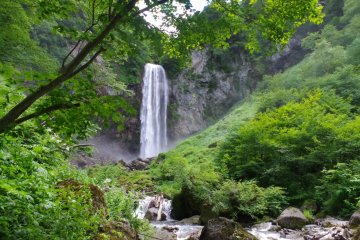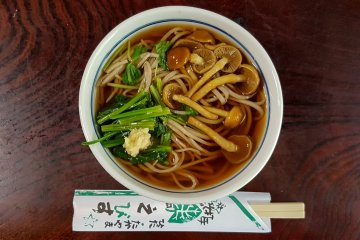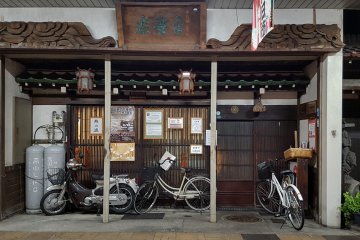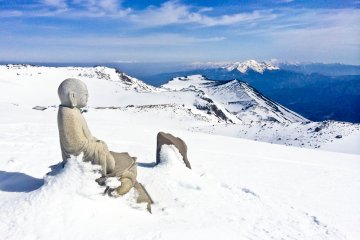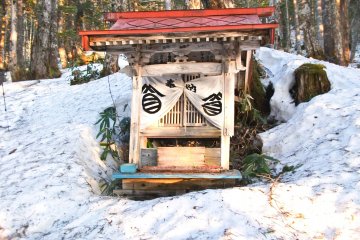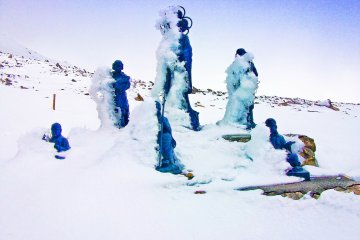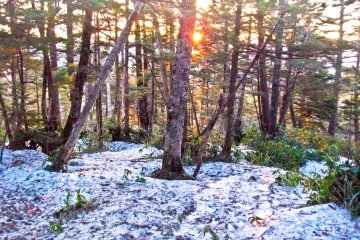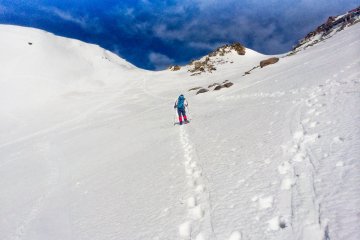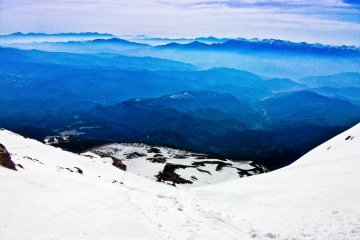It was around October last year on a clear and crisp autumn morning when I caught my first and unforgettable sight of `Mount Ontake`.
For many people autumn is best known for ‘Momiji’ (autumn colors), where many trees beautifully transform from pale green into various shades of vibrant red and yellow. The popularity of Momiji has become a cultural phenomenon attracting large crowds annually.
In my eagerness to experience this within a mountain setting, I headed for `Kiso-koma-ga-take` in the Kiso valley, Nagano.
As with many other hikes, reaching the peak of this mountain filled me with a sense of satisfaction. However, this feeling was unexpectedly superseded by astonishment when gazing into the distance and catching sight of something truly amazing, Mount Ontake.
Standing proudly at 3067 meters tall, this mountain ranks high on any climber’s itinerary. Similar to Mount Fuji, `Ontake San` is a volcano, (the second highest in Japan) and similar still, it is a stand-alone mountain unlike many others in Japan.
Perhaps it is because of these reasons as well as its sheer beauty and magnificence that many people become transfixed with it.
Vowing to return one day, I made good on this promise recently when a colleague suggested teaming up in his 4x4.I could hardly contain my excitement.
Traditionally the most popular time to visit is from July to October because this the only period possible to access the mountain by public transport.
If however, you are fortunate enough to find your own transportation, this mountain can be enjoyed anytime from April to November as it is a relatively easy six hour hike to the main summit and back providing you have proper hiking gear. Good crampons are essential!
Access
The best place to start this hike is from the large car park at ‘Ta-no-hara’ (田の原), where the trailhead begins. There is a bus stop which will bring you up here during the summer months.
From Kiso-Fukushima Station on the JR Chuo-Honsen Line, you can catch 2 daily buses, departing in the morning and at midday. The 75 minute ride costs around 1500 Yen. For the latest information on times and fares please call Ontake Kotsu 0264-22-2444 or visit www.rosenzu.com/ontake.
Kiso-Fukushima is easily accessible from any major city. From Tokyo’s Shinjuku Station an abundance of highway buses depart hourly, making the 4 hour journey and costing around 5000 Yen. Please see the above link.
The course
A popular course for many summer hikes starts at Ta-no-hara and ends at the beautiful Onsen town of `Nigorigo`. For winter hiking however, it is best to aim for the peak of ‘Ken-ga-mine’ ( 剣ヶ峰 ), returning the same way back to Ta-no-hara. The snow covered slopes offer a totally different perspective and more tranquil atmosphere when compared to the green, sun drenched peaks in August. Despite the snow, this is a relatively easy hike to do as long as you follow the main course and don’t go beyond the peak of Ken-ga-mine. Beyond this point the weather can be very unpredictable and suddenly turn against you, something which we experienced first-hand.
After sleeping in a 4x4 for several hours we both got up at 4 am to be greeted by a star lit sky and a ‘Combini-Bento’, (breakfast). We started hiking at around 4.40 am with the night sky gradually giving way to the morning sun.
With sunrise threatening to overtake us, we hurriedly made our way through snow covered forest to the nearest clearing offering a viewpoint. We arrived just in time to see the amazing spectacle of the Northern Alps being illuminated by the morning sun.
Two hours into our hike we reached ‘Hachi-go-me’ ( 八五目 ). This is a good place to rest offering excellent views. There is also a mountain hut here as well as some very impressive religious statues and ‘torii’, (gates usually found in front of Shrines).
From this point it takes just over an hour to the summit; the bad news is however, that this is the hardest part of the hike involving a climb over a steep ridge. Once you reach the top of this ridge a huge basin shaped area awaits your partial descent then further ascent up to the peak. When going ‘over-the-top’ don’t forget to look back at the view behind you, it is definitely worth it.
After about forty minutes you will finally reach the peak of Ken-ga-mine, where a snow covered tori and shrine awaits you. The panoramic views of the neighboring peaks are nothing short of spectacular. Despite the cold wind blowing in our faces, there was definitely something very tranquil and spiritual about visiting this mountain at this time of year.
Feeling recharged both physically and mentally, we were then ready to continue on further to `Mamako-take` ( 継子岳 ) for the next part of our adventure.



